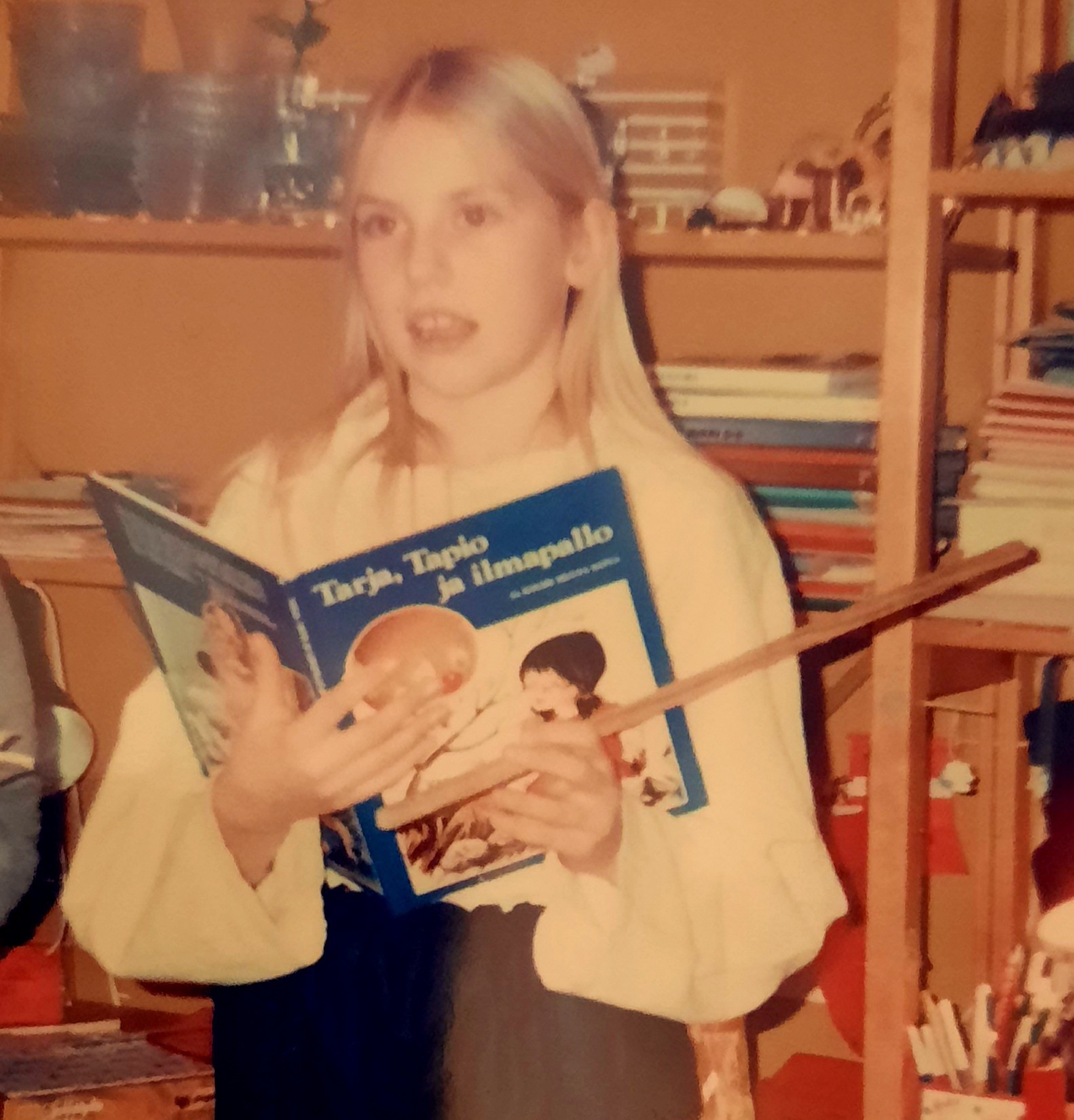 When I am thinking about my childhood in Finland, I remember an empty land block next to our house that initiated creative play. I also remember detours when walking home from school. We were never escorted by adults but always had the freedom to explore our surroundings, walk, and ride our bikes anywhere we wanted. Sometimes, we walked in the forest along the sand ridge; occasionally, I skied to school across the fields. But in many ways, my childhood was also characterized by discipline and competition. I did ballet and competed in many sports. I believe my critical research on education and my multidisciplinary artistic research originate from these dichotomous childhood experiences of following the rules and norms set by the adults and having constant opportunities for free explorations without supervision. I earned my master’s degree in 2001 and became a Finnish language and literature teacher at a secondary school. Having a “decent” job did not satisfy my curiosity and creativity for long. I moved to Australia to study dance animateuring at the University of Melbourne. That year changed utterly my understanding of dance but also pedagogy. Suddenly the learning was not about reaching some pre-established goals but more like personal investigations of body, movement, and various phenomena. I wanted to study this more, and I completed my arts-based study The Pedagogy of Recognition. Dancing Identity and Mutuality and earned my Ph.D. in 2013 at the University of Tampere, Finland. After my doctoral studies, I have extended my research focus from social justice issues onto ecological concerns. In 2015–2017, I led an independent arts-based research project, Art-Eco. After that, I have continued to develop educational theories and artistic practices that better recognize how we as humans live in an interdependent relationship with the rest of nature. In this task, I have to let go of the artificial boundaries between subject-object, culture-nature, science-art, and many more. In Re-connect / Re-collect project, I do both artistic and more traditional academic research. I am particularly interested in how collaborative memory stories work as the pedagogy of recognition and how the phenomenological understanding of the body can help recall individual and collective memories. Ultimately, I aim to understand how memory work can initiate ethical considerations and actions toward more ecosocially sustainable practices.
When I am thinking about my childhood in Finland, I remember an empty land block next to our house that initiated creative play. I also remember detours when walking home from school. We were never escorted by adults but always had the freedom to explore our surroundings, walk, and ride our bikes anywhere we wanted. Sometimes, we walked in the forest along the sand ridge; occasionally, I skied to school across the fields. But in many ways, my childhood was also characterized by discipline and competition. I did ballet and competed in many sports. I believe my critical research on education and my multidisciplinary artistic research originate from these dichotomous childhood experiences of following the rules and norms set by the adults and having constant opportunities for free explorations without supervision. I earned my master’s degree in 2001 and became a Finnish language and literature teacher at a secondary school. Having a “decent” job did not satisfy my curiosity and creativity for long. I moved to Australia to study dance animateuring at the University of Melbourne. That year changed utterly my understanding of dance but also pedagogy. Suddenly the learning was not about reaching some pre-established goals but more like personal investigations of body, movement, and various phenomena. I wanted to study this more, and I completed my arts-based study The Pedagogy of Recognition. Dancing Identity and Mutuality and earned my Ph.D. in 2013 at the University of Tampere, Finland. After my doctoral studies, I have extended my research focus from social justice issues onto ecological concerns. In 2015–2017, I led an independent arts-based research project, Art-Eco. After that, I have continued to develop educational theories and artistic practices that better recognize how we as humans live in an interdependent relationship with the rest of nature. In this task, I have to let go of the artificial boundaries between subject-object, culture-nature, science-art, and many more. In Re-connect / Re-collect project, I do both artistic and more traditional academic research. I am particularly interested in how collaborative memory stories work as the pedagogy of recognition and how the phenomenological understanding of the body can help recall individual and collective memories. Ultimately, I aim to understand how memory work can initiate ethical considerations and actions toward more ecosocially sustainable practices.
